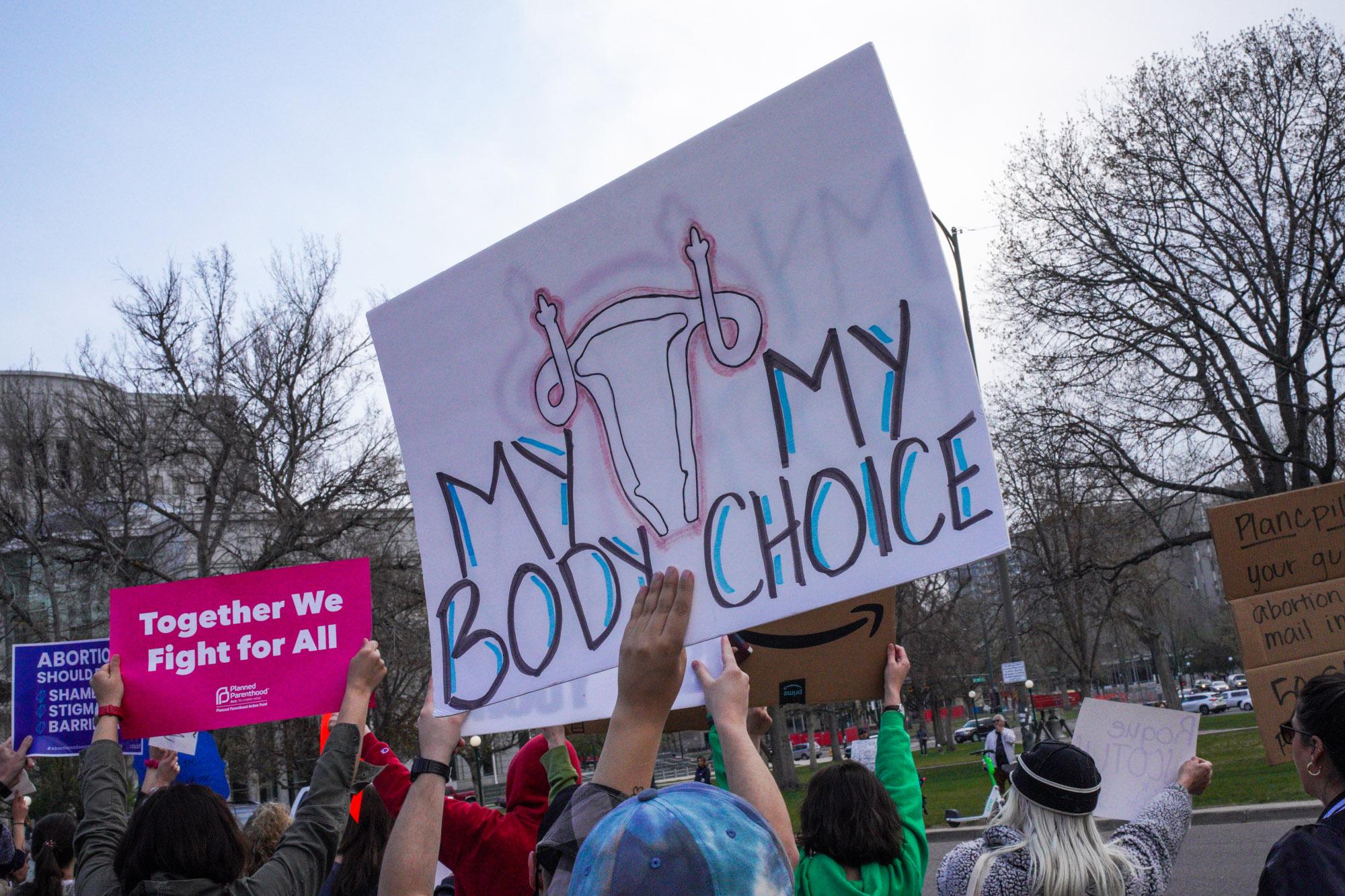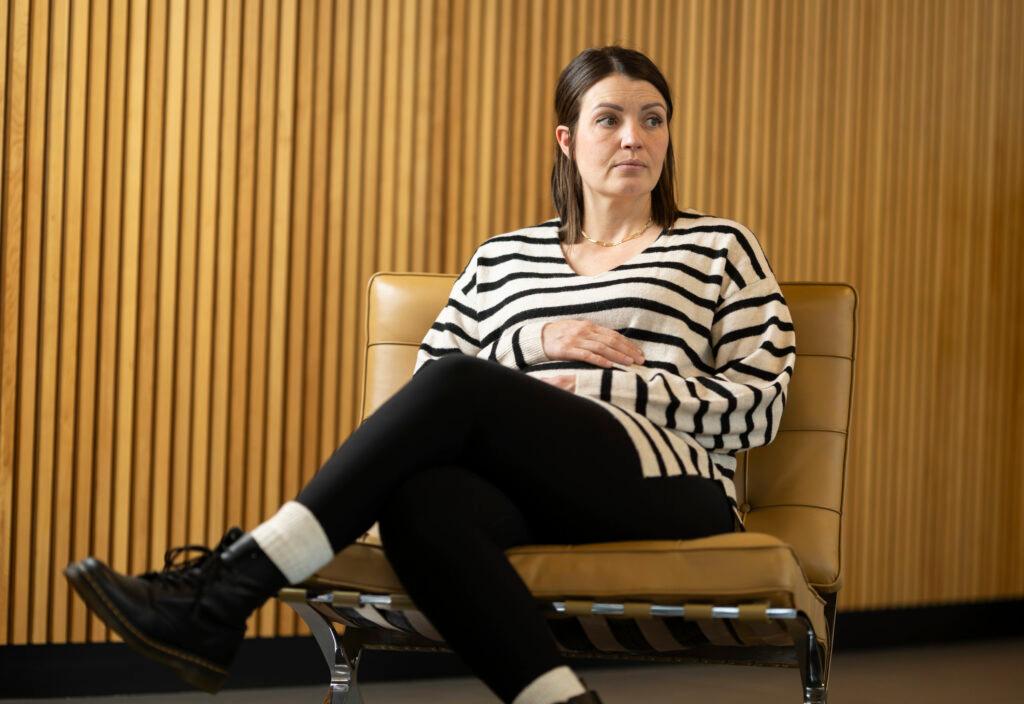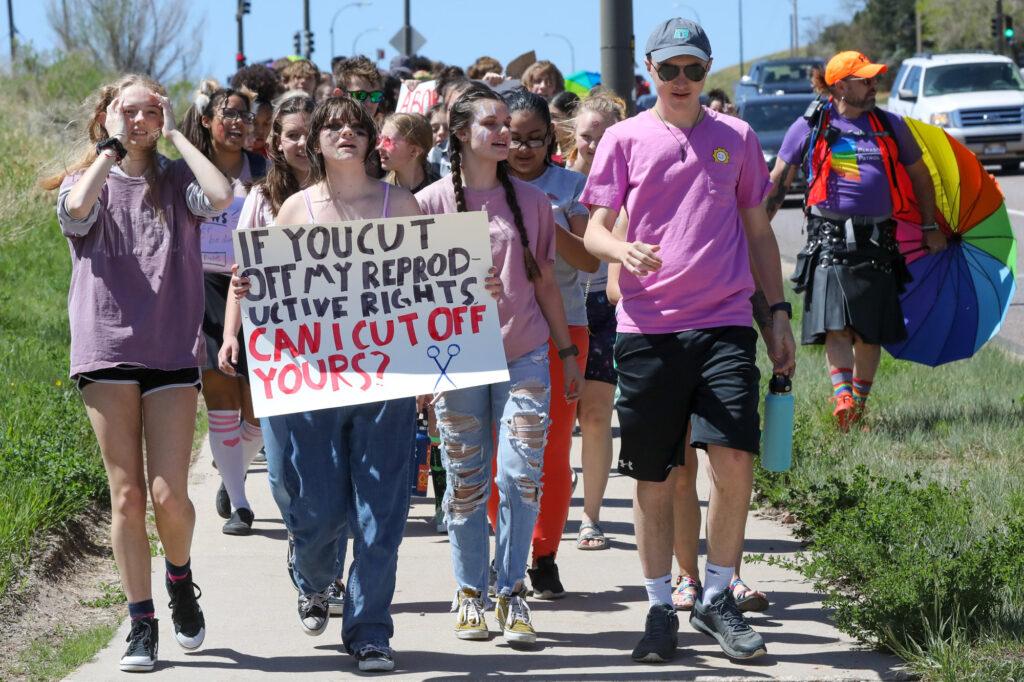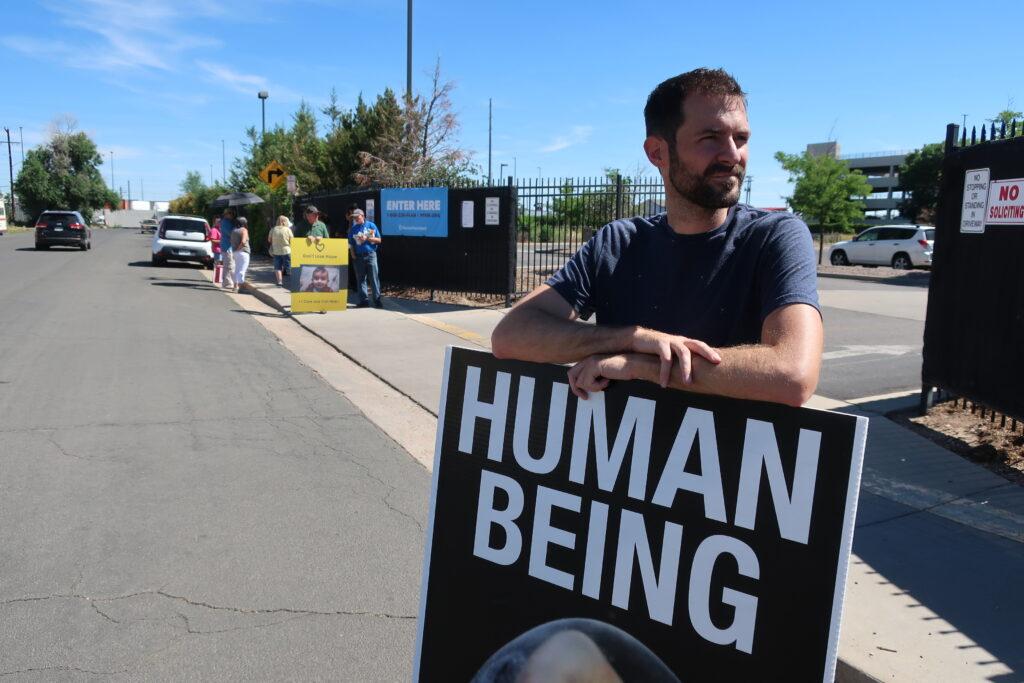
On the 10th day of the 2024 legislative session, Colorado lawmakers took up a joint resolution.
The measure, backed by a majority of Democrats, designated Jan. 22 as Roe v. Wade Anniversary Day. It passed easily, but ignited sparks and foreshadowed a looming political fight.
“Now we live in an America where your rights to bodily autonomy are determined by your state's politicians, state legislatures,” said Rep. Meg Froelich, a Democrat from Englewood.
But it drew condemnation from Republicans.
“Let's go to work for the people of Colorado and stop playing political games,” said Republican Rep. Brandi Bradley from Littleton. “Roe and the cases that stem from it represent a national disgrace, not a point of pride.”
The political debate rages on while the new national abortion landscape is still evolving after the U.S. Supreme Court in 2022 overturned the landmark Roe decision. It legalized abortion on Jan. 22, 1973.
The out-of-state figure has more than tripled since 2020. And its percentage of the total number of procedures has more than doubled between 2021 and 2023.
In 2023, about 4,200 patients came to Colorado from out of state for the procedure. That's nearly 30 percent of the state's total of about 14,400, according to provisional state health department data. Coloradans seeking the procedure were down slightly in 2023 compared to 2022. Final numbers are expected by the end of February.
“Our patients continue to be traveling mostly from Texas, but also from other restricted abortion states,” said Dr. Nancy Fang of the Comprehensive Women’s Health Clinic.
The number of patients traveling to Colorado from Texas dipped toward the end of 2023 as more went to health centers in Nevada and New Mexico, said Adrienne Mansanares, the president and CEO of Planned Parenthood of the Rocky Mountains.
“They can fly into Vegas because our care here in Colorado was getting pretty booked,” she said. “So still large numbers of people are traveling from Texas, but we're seeing it dispersed across our region a little bit more.”
About 2,800 patients came from Texas. In 2019, that number was 40. the number of patients who traveled to Colorado for an abortion is now 70 times more. The figure rose from 400 in 2021 to more than 2,400 in 2021, when the Supreme Court issued its Dobbs ruling, ending the protections initiated by Roe.
The number of patients traveling from other nearby states with the most restrictive laws also mostly rose, but the volume from Texas dwarfs numbers from those states.
Slightly more patients traveled to Colorado for the procedure from South Dakota (156), Utah (72), North Dakota (13), and Idaho (10) than in 2022 Those traveling from Oklahoma dropped from 198 in 2022 to 178 in 2023.
The number of patients coming from Wyoming dropped from 298 in 2022 to 244 in 2023. The volume traveling from Nebraska (129), New Mexico (124), and Kansas (62) also declined.
The abortion policies of Colorado, Montana, and New Mexico are described as protective or very protective on an interactive map from the website of the Guttmacher Institute, a research and policy group that advocates for sexual and reproductive health and rights.
Texas, Oklahoma, South Dakota, North Dakota, and Idaho are listed as having policies that are most restrictive. Those of Arizona, Utah, Wyoming, Nebraska, and Kansas are listed as very restrictive or restrictive.
Nearly one in five patients in the U.S. is now traveling out of state for abortion care, according to the group. That compares with one in 10 in 2020, an increase happening after states passed abortion restrictions and bans following the Dobbs ruling.

The ongoing influx is not just politically significant, but having an impact on clinics and patients.
“The strain on the clinics in Colorado I think is only going to increase because of the amount of need and the amount of financial need that goes on with that,” said Jennifer Hendricks, a CU law professor.
Abortion opponents decried the trend.
“ It's a number that no one should be proud of,” said Will Duffy, president of Colorado Right to Life, which opposes abortion. “Criminals will cross state lines in order to commit a crime. So we're not surprised that people would come to Colorado to have an abortion.”
“It's horrific that the number of especially surgical abortions, which is what those numbers are in the state of Colorado, have gone up since the Dobbs decision,” said Brittany Vessely, executive director of the Colorado Catholic Conference. “But that is what the purpose of the Dobbs decision was, was to allow states to legislate on abortion.”
She noted many patients are coming from states with more restrictive laws, but some are traveling from locations with less restrictive abortion laws, “which means they're coming here in later stages of pregnancy.”
“There's a concerted effort by pro-abortion lawmakers as well as the pro-abortion lobby to make Colorado kind of the heart of abortion in the West,” she said.
According to the state’s data, 73 percent of all terminations of pregnancy took place at eight weeks of gestation or less. Twelve percent were at 9 to 11 weeks. About 15 percent were performed after 12 weeks, with generally declining figures for terminations as the number of weeks grew. A little over 100, about 1 percent of the total, occurred after 28 weeks.

The impact of the Kate Cox Case
One case at the end of last year, that of a woman living in Texas named Kate Cox, spotlighted the national debate — and trend of traveling to less restrictive states to obtain an abortion.
Cox had pregnancy complications and asked the Texas court for access to an abortion but instead ended up traveling to an undisclosed state for the procedure.
Twenty weeks into her pregnancy, Cox, who is married, lives in the Dallas area, and has two children, learned her fetus was diagnosed with Trisomy 18, a fatal chromosome disorder, which causes numerous birth defects. Her doctors also warned her of debilitating health conditions if she remained pregnant.
She sought permission to end the pregnancy, which a lower court judge granted. But the Texas Supreme Court overturned the ruling. Cox went to another state for the procedure, like thousands of others, reflected in the state data, now traveling to Colorado and other states where abortions are still legal.
The NYTimes reported that Texas recorded only 34 abortions last year as of December 2023, a drop from more than 50,000 in 2020, before the first of the most restrictive rules took effect.
“I’m trying to do what is best for my baby and myself, but the state of Texas is making us both suffer,” Cox is quoted on the website of the Center for Reproductive Rights, a legal, policy, and advocacy group that represents her. “I do not want my baby to arrive in this world only to watch her suffer. I need to end my pregnancy now so that I have the best chance for my health and a future pregnancy.”
Both sides in the contentious fight over abortion see the Cox story as significant.
Abortion opponents defended the policies and decisions of the state of Texas.
“There should be no exceptions to murder,” said Duffy of Colorado Right to Life. “There's never a situation where you have to kill a child to save the mother, and there's never a situation where you have to kill the mother to save the child.”

The case resonated with abortion rights supporters nationally and in Colorado.
“The Cox story is an example. It is not an exception,” said Mansanares of Planned Parenthood, who described other patients with health emergencies driving through the night with kids in the backseat or facing jail time or fines for traveling for the procedure. “When we have patients that are forced to leave their home communities, they do it for a variety of reasons.”
“The reality is everyone needs an abortion at some point,” said Fang, who cited statistics that up to one in three or four women at some point in their life receive an abortion.
“Kate's story resonates because she's a mother, she wants another child and she is seeking health care,” she said. “She wasn't able to find that health care despite her social location, of being privileged, of having good access to insurance and doctors.”
The year ahead promises to be another key chapter As a critical election year, with presidential and Congressional races, as well as state ballot measures in the works, 2024 will be consequential.
“2024 is going to be a big, and I would say a dramatic year about this issue,” said Mansanares. “We are going to see lots of stories, lots of media, and it's going to be coming at it from all edges.”
Backers of a ballot initiative to put the right to abortion into the Colorado constitution in January launched their campaign at the state capitol.
The push has less than six months to gather more than 124,000 valid signatures statewide to make the ballot in November. As a constitutional amendment, it must win 55 percent of the vote to be approved.
Abortion opponents said they’d be rallying to fight the ballot measure, via Pro-Life Colorado, a recently incorporated organization, said Vessely of the Colorado Catholic Conference. “We are the coalition of over 40 pro-life groups, including a lot of pregnancy centers and medical associations that are going to be issuing a campaign against the right to abortion effort.”
She said she’s confident, based on polling data, that most Coloradans want some restrictions.
“The data does not show unrestricted abortion is wanted, and we have a constitutional prohibition against public funding of abortion,” she said.
Also, the U.S. Supreme Court is set to make another major ruling, this time about an abortion pill.
In January, it agreed to review a lower court ruling that would make the commonly used abortion pill mifepristone less accessible.
Opponents of the procedure said they hoped the court would do just that. “It ends the life of the baby growing inside the pregnant mother and the U.S. Supreme Court will have an opportunity here to protect life,” said Colorado Right to Life’s Duffy.
An unfavorable ruling for abortion rights supporters “would be an earthquake,” said Fang of the Comprehensive Women’s Health Clinic. “It is shown to be a safe and actually a better option for managing early pregnancy loss.”
A decision in the case is likely by summer.
- Abortion delays have grown more common in the US since Roe v. Wade was overturned
- Colorado abortion amendment campaign kicks off on anniversary of Roe v. Wade decision
- Protect abortion in Colorado’s state constitution? Backers of a proposed amendment hope voters will do just that
- Judge blocks Colorado’s ban on abortion pill reversal treatments
- Abortion numbers rise sharply in Colorado, driven by out-of-state patients









